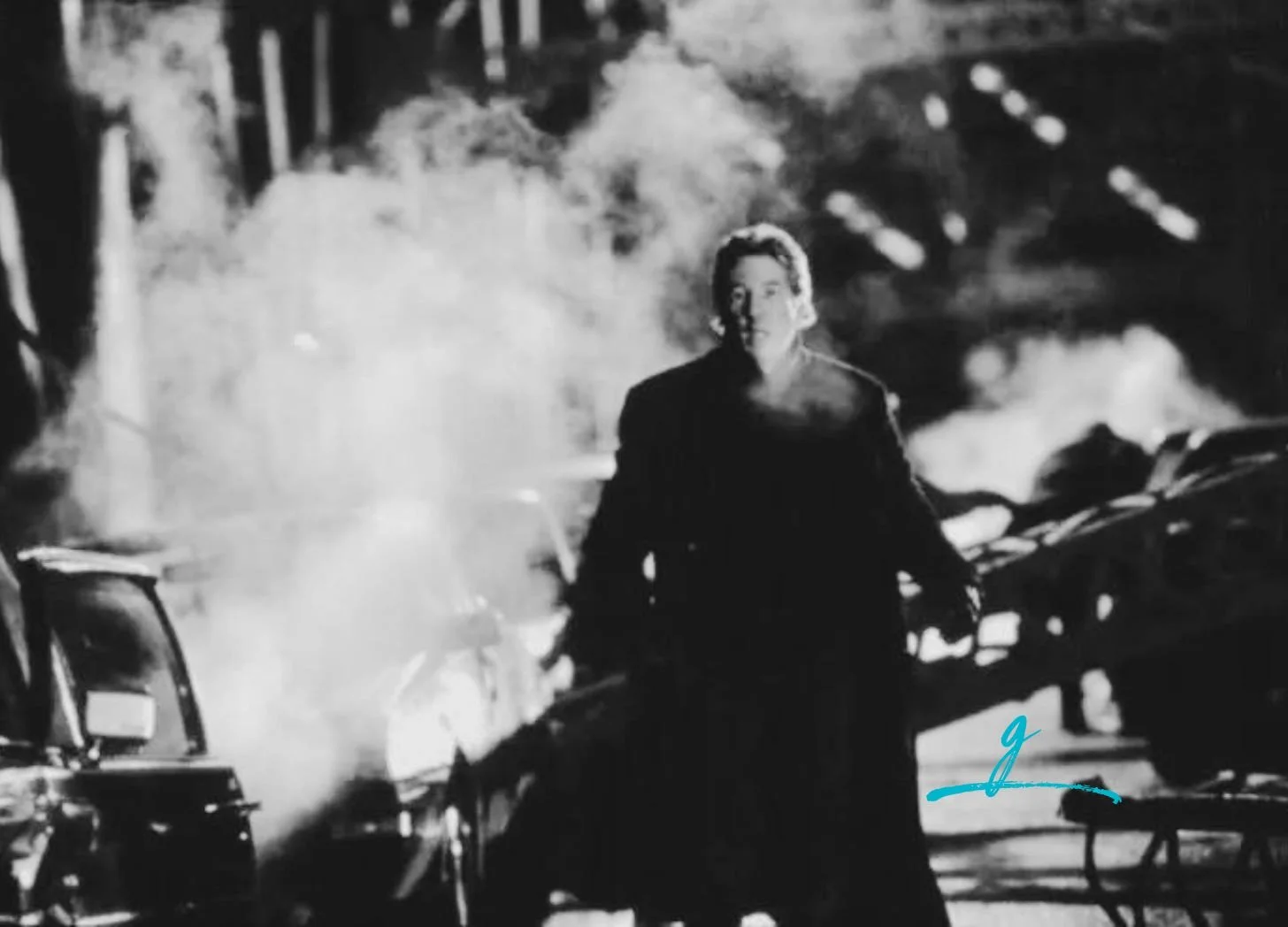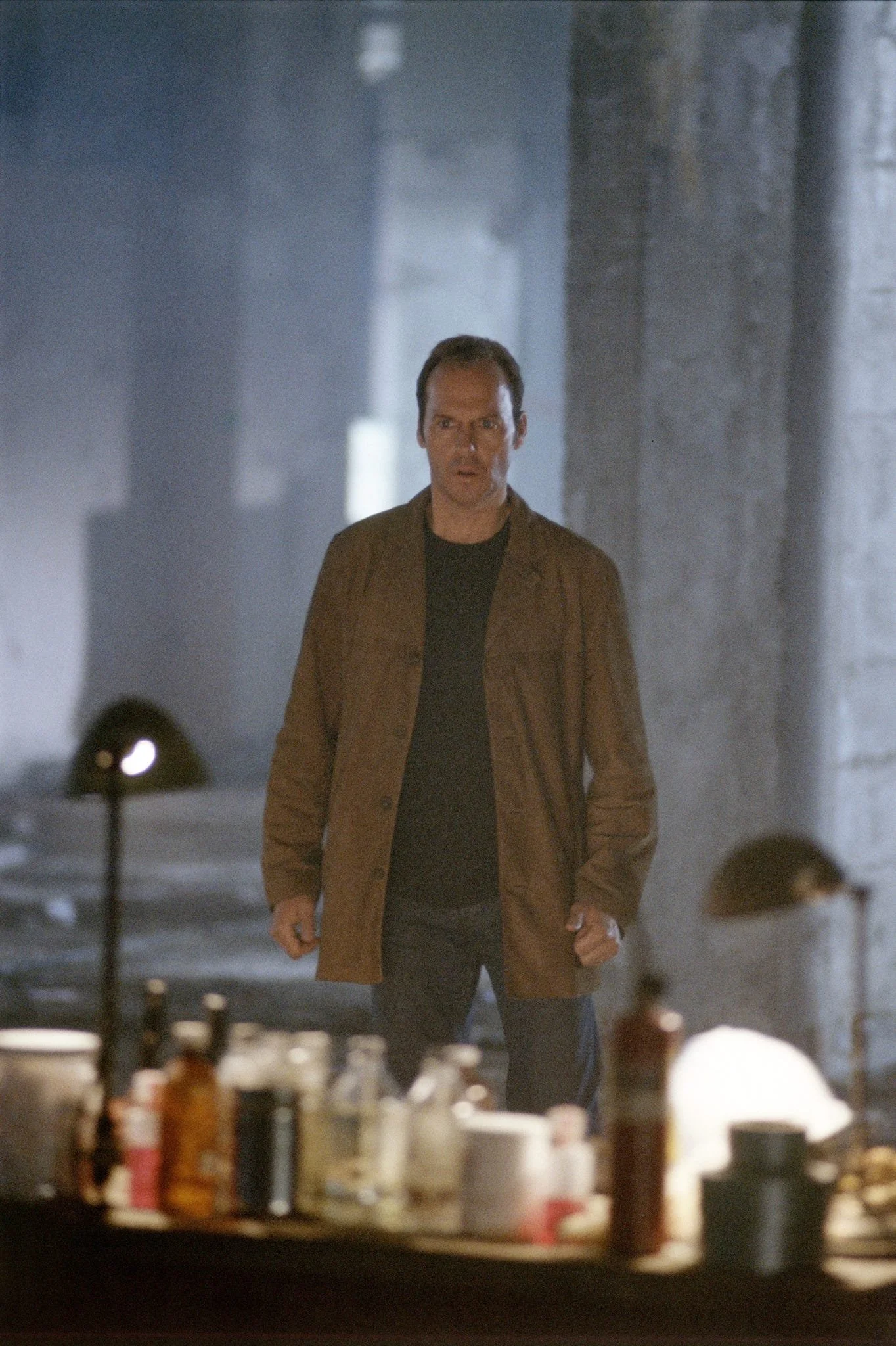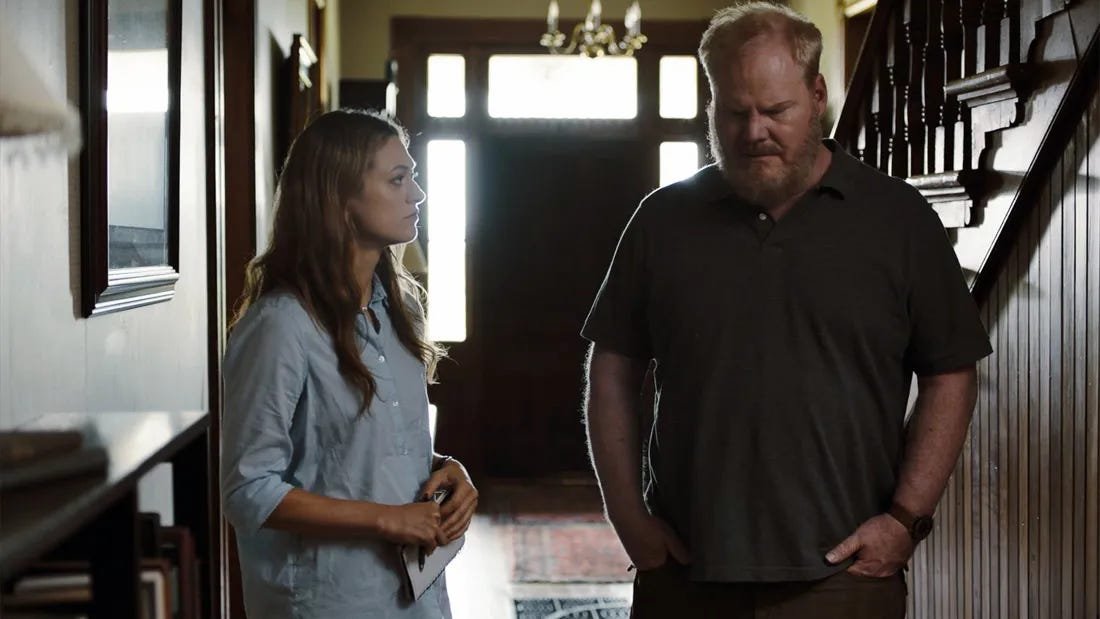Haunted by Loss, Driven by Obsession: The Widowhood Effect
It is no surprise that, in a horror movie, death is only the beginning.
In reality, it is also true. Someone’s death creates a ripple, radiating outward.
Sometimes, it consumes.
A tragic example is one that sees the life expectancy of recently widowed spouses decrease by a substantial amount in the months immediately following the death of their spouse. Known as the Widowhood Effect, it affects all spouses, yet the impact is outsized for men. Compared to similarly aged men and women, the increased risk of death in the year following a spouses death rose to 70% for men and only 27% for women. (here is a link to an actual scientific study, here is the media friendly, short-hand version)
There are numerous social relationship reasons that compound the Widowhood effect for men, including the way men seemingly stop creating new friendships and cease nurturing their existing ones. Even in the unhappiest of partnerships, women inadvertently become the social planner, the glue for most of the relationships maintained throughout the marriage.
When their spouse passes away, the widower is rarely able to build the relationships he requires, even pushing away those people who reach out with the best of intentions.
While this reality is heartbreaking on its own, there is an added dimension for a subset of people.
Our brains are designed to play tricks on us.
Hallucinations, both auditory and visual, are more common than we realize. Unless something is obviously odd, say, seeing a silverback gorilla sitting in your living room smoking a pipe, we accept what we see and hear to be ‘real’. Seeing and hearing rely on sensory processes that have little to do with reality though, as we witness with colour blindness or slowly losing our hearing - it all comes down to perception. Oliver Sacks discusses this in his book Hallucinations. These experiences are not relegated to those with mental illness. In fact, the loss of a loved one followed by friendly ‘visits’ by them is not uncommon at all.
It is little wonder that some men become lost themselves.
Telling themselves stories, building narratives around their deceased partner. The ‘ghost’ is their own perception keeping their spouse alive. Especially, if he continues to live in their home. Her half of the bed remains untouched. There is her chair. This is her favourite mug. That is the blanket she used to curl up underneath, sipping coffee while watching the morning rain.
Memories rush to fill the void.
Until memories begin intruding, ‘haunting’ our waking moments.
The Mothman Prophecies (2002)
Many films have explicitly dealt with spousal loss and the aftermath, including one of my favourites The Mothman Prophecies, stars Richard Gere as a man who allows his life to unravel following the death of his wife. At least, that is one perspective the audience can consider.
The 2002 film features our protagonist, John Klein, a Washington Post reporter, navigating an empty life following the death of his wife Mary. The events leading to Mary’s death are simultaneously unusual and easily explainable by the discovery that she has late stage glioblastoma. After two years pass, John is still firmly married to Mary, showing no interest in dating anyone else, nor doing anything besides his job.
“She’s not Mary. Not by a mile. But you know what? No one ever will be.”
In the middle of the night, after driving for 90-minutes from Washington, D.C. to Richmond, Virginia, he inexplicably finds himself with a broken down car, on the side of a deserted road hundreds of miles from where he should be. A small town called Point Pleasant, on the western border of West Virginia. He discovers he isn’t the only person experiencing strange occurrences, and it is valid to think that the reporter in him would be intrigued to learn more about what is happening. But, this is man who is the trusted voice for his national audience during an election cycle. Someone who ‘has it together’, which is why I feel this film does an excellent job showing how easily he descends into grief fuelled delusions.
Richard Gere & Laura Linney re-team in the psychological thriller, The Mothman Prophesies
You can watch Mothman three ways.
First, fully buying into the supernatural premise (which, even though I’m writing this essay, is definitely the most fun way to view the film).
Second, seeing everything as a coincidence - the result of built up hysteria or even shared intuition preceding a tragedy, presided over by the steadfast presence of Laura Linney. Her character, an officer in the Point Pleasant police department, is the voice of reason for the community, someone they depend on and can open up to. For her the loss is occurring in real time. Before her eyes, people she has known her whole life are growing uneasy. Afraid they are losing their grasp on sanity.
Finally, the third lens is that of a reporter investigating odd experiences - a narrative into which he unconsciously inserts his wife. John desperately wants to find a connection between his wife’s death and the events unfolding in Point Pleasant. It is only when he inserts himself into the investigation, starts listening to the stories from affected townspeople, getting caught up in the excitement of discovery, that he begins to see and hear his wife. In dreams and while awake.
“Are you happy?”
This third perspective recognizes that John easily becomes obsessed with this investigation to the detriment of his career. In the act of discovery, of needing to know what is happening, keeps her alive. He needs for a connection to exist. For his wife’s death to have meaning. His brain, wired from sleep deprivation, and experiencing heightened emotions, responds by projecting visual and auditory hallucinations of Mary.
He replaces the emptiness of a life without his wife, with an almost maniacal pursuit of some unknowable truth. The sheer excitement and thrill represent the first time he himself feels alive since she passed. It seems a noble quest, one which energizes John, allowing him to feel a sense of purpose. Yet, the messages she continues to send are her last words ever spoken to John. Over and over she asks, are you happy?
The ambiguous nature of the film is why I return to it now and again. Not to mention the fact it is a well-made film, with effects that are intentionally vague and add to the overall creepy feeling. With a first rate cast, rounded out by a compelling Will Patton performance, this a solid psychological thriller, however you wish to perceive it.
White Noise (2005)
It is that last component I noted, replacing emptiness with a perceived need to know the ‘truth’, to find meaning in a spouse’s death that takes centre stage for two other films. One, which is far less ambiguous, and not as noteworthy in my opinion, is White Noise (2005).
Not to be confused with the recent, similarly titled release from Noah Baumbach, this film follows closely the horror theme of mankind’s reckoning with technology. While the protagonist, Michael Keaton, struggles to reconcile his life immediately following his wife’s death, the movie quickly jumps to him abandoning everything to seek answers. All while believing he can communicate with her via EVP (electronic voice phenomena).
What I remember most about this movie is a conversation I had after my one and only viewing of it. At the time I was dating a man whose father was a widower, and had been for a number of years. His father was middle aged by then, though certainly young to be widowed, and had definitely not moved on. It isn’t that he spent his days moping, simply that, his wife’s presence was always there, in a positive light more so than negative. Yet, he could not let her go.
As soon as we left the theatre, my then boyfriend turned to me and said “we can NEVER let my dad see that!”.
It was funny, we both laughed, and so true.
In a brief flash, the reality that his dad actually could be susceptible to sliding down the rabbit hole of believing he could actually contact her, was one that could not be ignored. We didn’t actually think it was a high risk, don’t get me wrong. But if you’ve ever witnessed someone grieving, there are small moments where you question how far to let the story go. People begin harmlessly attributing a connection to their deceased partner with the appearance of inanimate objects (found a penny in my shoe, must’ve been her) or natural elements (the wind picked up as I thought about her, she was embracing me). At what point does keeping someone’s memory alive cross over to delusion?
Light From Light (2019)
Recently I saw a different take on a widower unable to move on. Light From Light (2019) addresses the concepts of loss and keeping the memory of those we loved alive, with a lot less scares. It receives a horror classification on some streaming platforms, I suppose because it does feature the supernatural, but this is not scary, nor do I believe it is intended to be.
I thought of it here, as that drive to solve the mystery of a spouse’s death once again fills the void of loss.
In this case, Richard, played by Jim Gaffigan, knows for certain there is something wrong with how his wife died. Her death surfaced the knowledge that she was likely having an affair. He isn’t bitter. He accepts that he may not have been the best husband and wants to know if she was at least happy in her last moments. That she was with someone who made her feel loved.
To explore this, Richard turns to Sheila (Marin Ireland, a familiar face to horror fans) who believes in the existence of the supernatural. In fact, it is her job, but she doesn’t see the reason for it. In all her years of paranormal investigations, she has found no purpose, no resolution in this pursuit. Naturally, she resists this pairing since determining a purpose and meaning are all that drives Richard to hire her.
Each film gives us an opportunity to explore contributing factors of the Widowhood Effect on men specifically. The inability to create new connection, the insistence of holding onto the memory of a loved one so tight that nothing can loosen their grip, and filling the void by seeking meaning from their spouse’s death.
Are there other films in the genre which effectively demonstrate this experience? Drop your favourite examples in the comments.
Enjoyed this story? Support my writing here, share with your network or subscribe below to receive your weekly update directly to your inbox.




